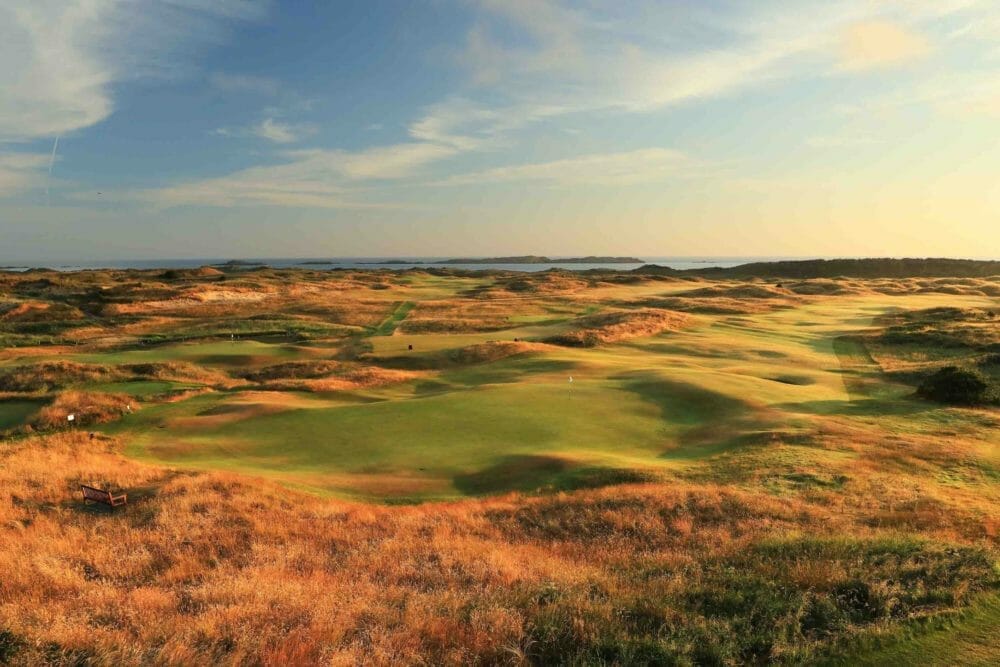The great old game of trying to get a little white ball into a faraway hole might remain the same at its core, but so much has changed since Royal Portrush last hosted the Open Championship in 1951.
Back then, the 80th renewal of golf’s oldest championship graced Irish shores as England’s Max Faulkner, who had twice finished runner-up at Royal Portrush in the Irish Open, picked up his first and only Major title in a wet County Antrim thanks to a hard-fought three-under par total.
The event saw the maximum number of players making the cut after 36 holes increase from 40 to 50 with those taking their chance and making the weekend playing for a grand total prize purse of £1,700, including £300 for the winner.
Just 148 players entered, the lowest since 1904, with the top-100 from qualifying, played at Portrush and Portstewart golf clubs on the Monday and Tuesday advancing to the tournament proper in the hopes of getting their name inscribed on the famous Claret Jug.
At Portrush in ’51, just two Americans made the halfway cut, something that won’t be repeated this year while back then, Portrush boasted a course length of only 6,802 yards, almost 500 short of the 7,337 yards it will play come tournament week in July. Furthermore, this year’s par will be reduced from 72 to 71 to combat the game’s big hitters with technological advancements since the days of the hickory stick taking the game to unchartered waters.
The third round in 1951 was played on the Friday with Faulkner firing a two-under 70 to stretch his 54-hole lead to six shots over Norman Sutton and Antonia Cerdá. Home hopes sat with Fred Daly who was going in search of a second Open Championship but his challenge faded in the fresh Antrim air before he eventually tied for fourth.
Whispers prior to Faulkner’s Friday morning move had made their way from the clubhouse suggesting that the eventual champion was signing autographs with an accompanying, “Open Champion 1951” despite having 36-holes left to play.
Without the help of social media, the rumours still spread and the myth remains to this day, with the colourful Englishman neither willing to confirm or deny its validity. Yet perhaps the truth behind the tale had surfaced when it came to light after his moving day 70, that Faulkner had signed an autograph for a young fan whose Dad had requested that the words ‘Open Champion’ be added to the signature because “you are going to win, aren’t you?”
Sufficiently convinced, Faulkner signed as asked but quickly gathered his thoughts when realising; “My God, I’d better not lose now!”
The final round was played that afternoon, with Faulkner’s 5, 5, 4, 5 finish for 74 opening the door to a potential fightback for Cerdá and the embarrassing revelation of Faulkner’s presumptuous autograph.
The Argentinian went out in 34 and needed to play his closing three holes in 12 strokes to force a playoff. However, an errant drive that came to rest against a barbed wire fence led to a six at the 16th with Cerdá eventually finishing two shots behind Faulkner. It was another 18 years before another Englishman, Tony Jacklin tasted an Open victory at Royal Lytham and St Annes in 1969.
“I went close on other occasions,” Faulkner remembered before his death at the age of 88 in 2005. “I only played one round of golf between 1939-45 when I was in the RAF. But for the war, I honestly think I might have won the Open three or four times.”
























Leave a comment